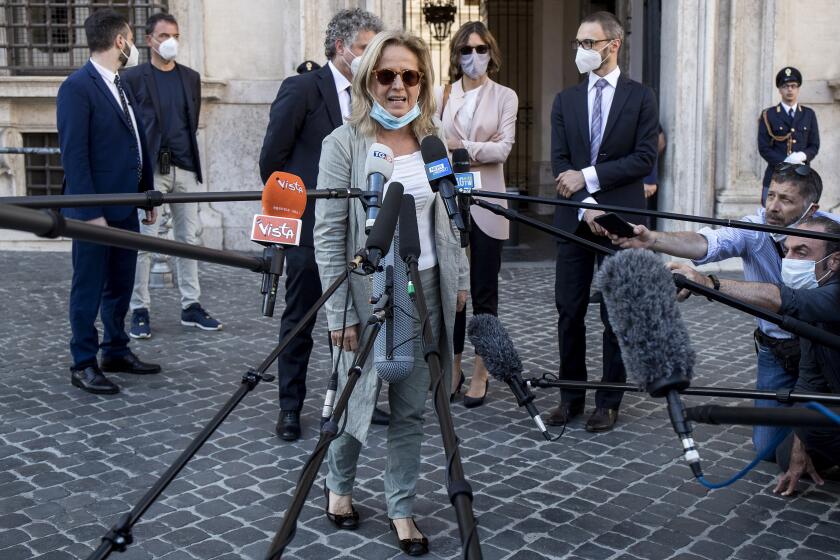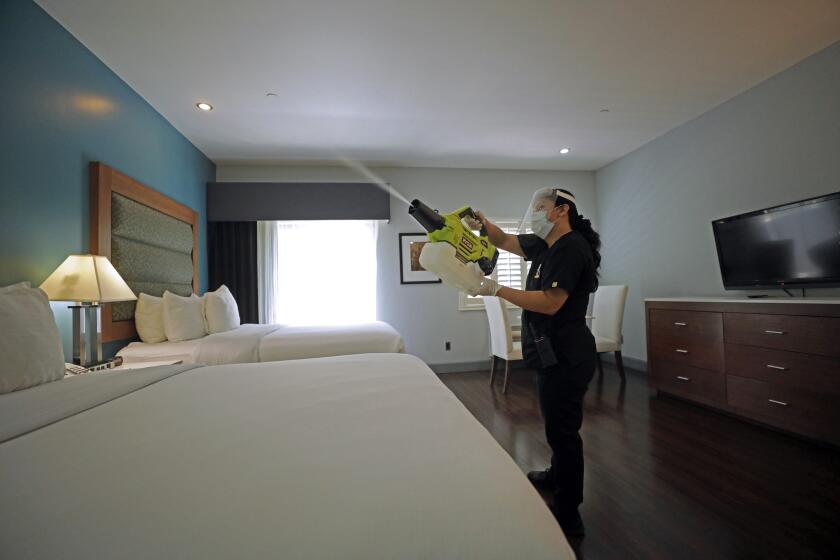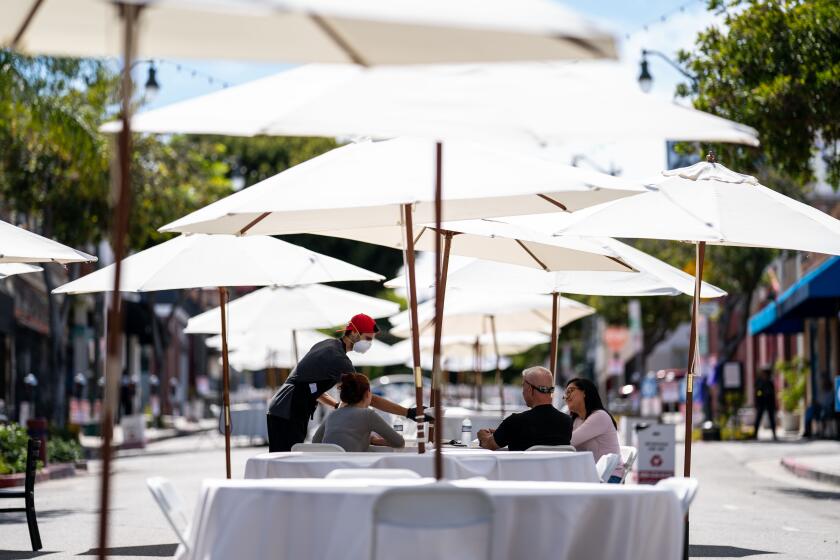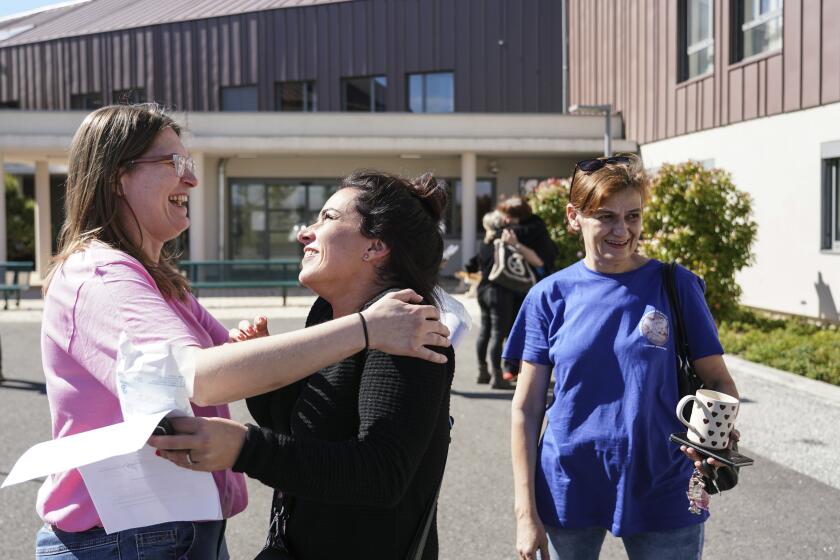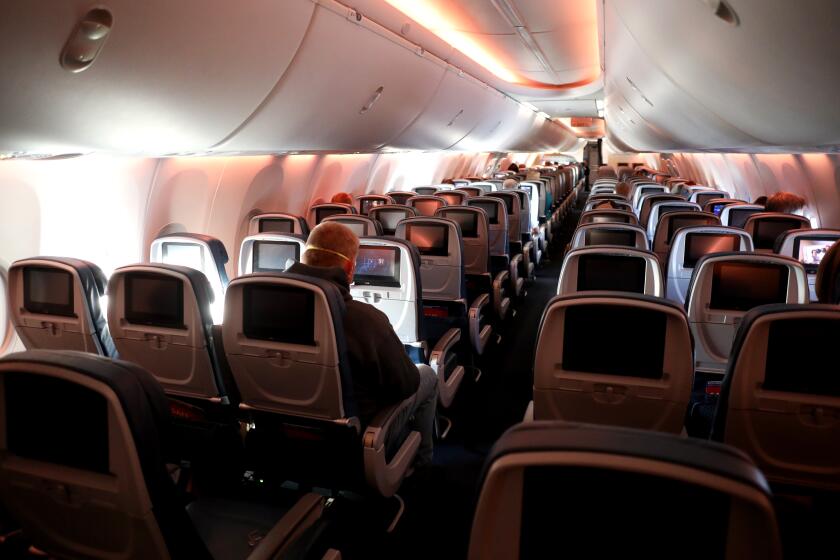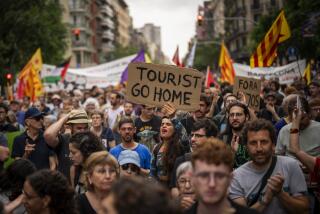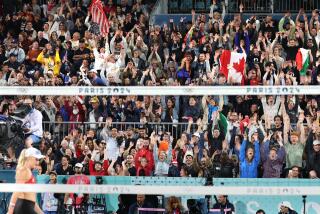‘Please come back’: Out of coronavirus lockdown, Europe begs tourists to return
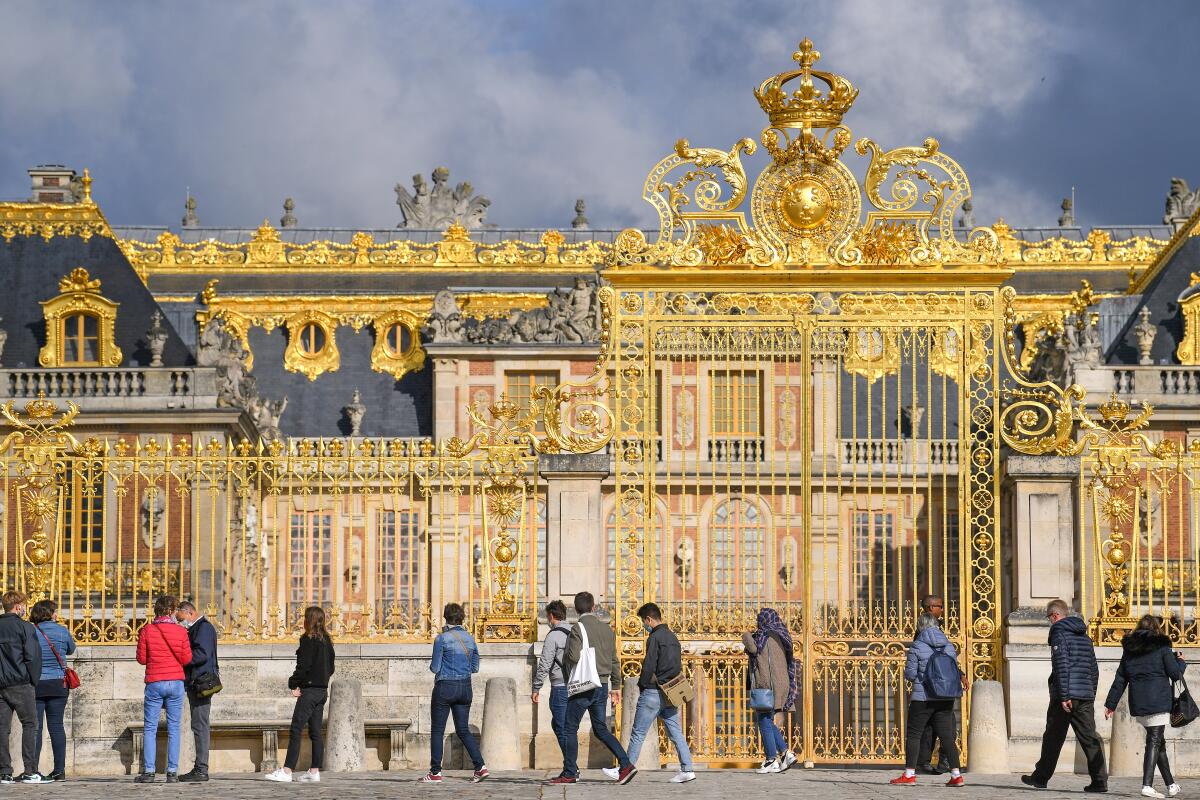
- Share via
VERSAILLES, France — In the gilded halls of the Palais de Versailles, visitors stop to marvel at the crystal chandeliers, Marie-Antoinette’s brocade-hung four-poster bed and the portraits of Napoleon drawn up to his full — if diminutive — height.
Then it’s on to the famous Hall of Mirrors, given a good dusting during the coronavirus lockdown for the first time since 2007, and the gory Gallery of Great Battles that, as a guidebook says, “depicts nearly 15 centuries of French military successes.”
But on this day, there’s virtually no one to impress with these exploits. The palace, normally crowded with tourists, is relatively empty because of the COVID-19 crisis.
“It’s like a private tour,” a Versailles spokesperson says, in a voice that suggests this is not a good thing.
Versailles, like many other European tourist attractions, is picking itself up after an enforced 82-day closure as part of France’s strict coronavirus lockdown, which shut the country’s airports and borders, even those with its close neighbors.
France reopened its European Union frontiers Monday, but visitors from farther afield without a “compelling” family or professional reason are not allowed in until international arrivals begin July 1, from a list of approved countries yet to be decided. Some hope that that will include Americans, who make up a sizable number of Versailles’ foreign tourists.
In Britain, France, Spain and Italy, grassroots groups of people grieving the loss of loved ones ask their governments: ‘Why?’
“We want to turn the page, forget this disease, which we have beaten, and get back to normal at Versailles. This is important because we want to say to American tourists: ‘Please come back,’” said Catherine Pegard, who runs the palace. “Versailles embodies the relationship between our two countries, and we are feeling the absence of U.S. visitors.”
Social-distancing rules requiring everyone to keep three feet apart and wear masks mean there can only be 500 visitors an hour, for a total of 4,500 a day. At this time last year, Versailles was selling 27,000 entry tickets a day.
France is Europe’s most-visited country, making tourism a key pillar of the economy. In 2018, the latest year for which figures are available, the sector generated an estimated $62.3 billion in revenues, amounting to more than 7% of GDP, and directly or indirectly employed 2 million people. The nation as a whole (population 67 million) welcomed nearly 90 million tourists, a third of whom visited Paris.
Europe accounts for half the global tourism market, EU officials say. Spain and Italy, which have been hit particularly hard by the coronavirus, rely on tourists for more than 10% of their economic output. For Greece, the number is closer to 20%.
If you break away from your coronavirus lockdown to vacation this summer, expect some changes at your hotel, such as no more valet parking and a capacity limit at the pool.
Experts say it’s too early to evaluate the full effect of the COVID-19 crisis, but the European Commission is already calling for a new “Marshall Plan,” using EU funds, to save the tourism industry.
To help salvage it, most countries on the continent reopened their borders Monday to travelers within Europe, firing the starting gun on a fierce race to attract still-wary visitors. Tiny Cyprus is so eager to get them back that it’s offering to pay the medical and hotel costs of any vacationers who come down with COVID-19 while visiting the island.
Although the coronavirus lockdown was eased for most of France in early May, the capital region (which includes Versailles) remained under restrictions until the beginning of June. Like Snow White, Paris is emerging from a deep sleep — and it’s desperate for a strong dose of coffee to fully wake up.
The City of Light’s famous cafes have taken a big hit from the coronavirus. To claw back some of their lost revenue, and with summer on the way, they’ve been allowed to colonize sidewalks and nearby parking spaces.
The city’s “L.A. Al Fresco” program grants temporary permits to expand outdoor seating into public spaces
“Expanded terrace space helps cafe owners as long as the weather cooperates, but many are telling me it’s not enough to make up for the shortfall,” said Lisa Anselmo, founder of Save the Paris Cafe campaign. “Even with additional terrace tables, they’re still losing up to 50% of their covers if they can’t serve inside.”
On the upside, she added, the expanded terraces have “created a festive, convivial atmosphere in our neighborhoods, and if the city can find a way to make this practical post-COVID, it could improve overall quality of life for Parisians and increase profits for struggling cafes.”
Drawing back in the city’s residents isn’t enough, though, said Kevin Meyer, a waiter at the renowned Deux Magots restaurant in the heart of Saint Germain on Paris’ celebrated Left Bank.
“It’s good that we’re really getting more Parisian customers, but normally 75% to 80% of our customers are tourists so we’ve seen less business and less money, which is bad,” he said. “We want the tourists back as well as the Parisians.”
As the coronavirus scythed through French nursing homes, one took drastic action to save its residents — and succeeded.
Southeast of Paris, in the Burgundy wine-making region, vintners have suffered a double-whammy: the shutdown of the hospitality industry and President Trump’s decision last fall to slap 25% import duties on their wine. The region’s 900 caves would normally expect to do 15% of their annual business from tourist visits and tastings.
Jean-François Bordet, a Chablis producer in the picturesque riverside village of Maligny, said local winemakers were struggling even before the COVID-19 crisis, as bad weather hit three out of the last four grape harvests.
“The wine domains have very little put aside in the bank to fall back on,” he said. “Already it was financially complicated for quite a few producers, and 2020 will be another bad year in terms of sales. We just have to hope it will pick up.”
The four-star Chateau de Courban hotel and restaurant — a popular stopping-off point in Burgundy for tourists shuttling between the Champagne city of Reims and the mustard city of Dijon — is opening next week.
During the lockdown, the hotel’s Michelin-starred chef, Japanese-born Takashi Kinoshita, cooked meals for nurses at a Dijon hospital. Plans to try for a second Michelin star have been put on hold.
“We had to stop all the extension work during the lockdown,” owner Frederic Vandendriessche said.
But things are looking up. “The bookings have started coming in,” he said. “Right now it’s mostly Belgians and British, as well as the French, of course. ... We’ve had many American guests in the past, and we’re hoping when the borders open to international visitors they’ll come back.”
In Versailles, 1 of every 8 visitors to the palace is an American. On a recent Sunday afternoon, there were no queues to enter the extensive royal gardens, which seemed almost deserted. Pegard, the palace president, is anxiously waiting for tourists to return.
Airline trade groups are making the case that the risk of getting COVID-19 on a flight is low.
“Perhaps many will decide to stay at home this year. Perhaps the French, who would normally go abroad for their holidays, will rediscover Versailles,” she said. “For the moment, we just don’t know what will happen, but everyone is welcome.”
Not that all Parisians are missing the throngs of foreign visitors jostling to get into the Louvre, gaze at the fire-damaged cathedral of Notre Dame or go up the Eiffel Tower.
Anne Deguy, a French journalist, said she had enjoyed discovering her home city without the crowds.
“I just love Paris without tourists,” said Deguy. “It’s empty and I’ve been profiting by going to places I haven’t been to for 30 years because normally they’re invaded by tourists.
“Of course, we need tourists for the economy, but it’s been really good to be here without them!”
More to Read
Sign up for Essential California
The most important California stories and recommendations in your inbox every morning.
You may occasionally receive promotional content from the Los Angeles Times.
